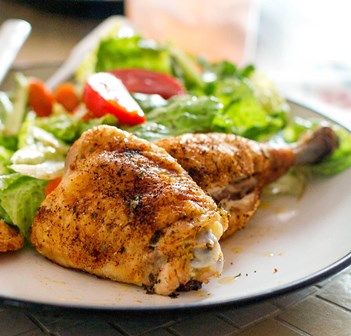
Warning over chicken supplies in South Africa
Astral Foods, a major poultry producer in South Africa, says production has been severely hampered by an increase in load shedding and the worst bird flu outbreak that the country has ever seen.
In a voluntary trading statement on its full-year results for the year ended September 2023, the group has warned that it will record a significant headline loss as a result, while stock of poultry in the country will come under severe strain.
This follows warnings earlier in the year that the cost impact of load shedding would continue for the rest of the financial year ending 30 September 2023.
These costs include the costs of diesel to power generators, the cutback in poultry production in the slaughter programme, higher feed costs due to older broilers, and additional overtime costs.
The costs amounted to R741 million for the six months ended 31 March 2023, with the group upping its forecast for the rest of the financial year from R844 million to R919 million.
The group said that the embedded cost of operating diesel generators now stands at R45 million a month.
“The total costs of load shedding, including capital costs of R200 million, for the group for the financial year will amount to approximately R1.9 billion. This has been the main reason for the severe decline of Astral’s results for the year ending 30 September 2023,” it said.
Although the group has cleared the slaughter backlog, which normalised broiler efficiencies to the targeted broiler age, the group has still been impacted by other external issues.
Promotional activity in the wholesale and retail sectors on chicken, combined with a normal slowdown in consumption during winter, has put a serious strain on the selling prices for chicken.
This has resulted in the selling prices for chicken not recovering their input costs, with the group having to subsidise load shedding and inflationary costs for an extended period.
Flu outbreak
The group added that the poultry industry is currently battling a serious outbreak of highly pathogenic Avian Influenza (bird flu). The group and other producers are incurring additional costs to cull broiler breeding stock in line with disease control measures.
“The losses extend beyond the biological cost of the culled birds but also include costs relating to measures taken for the safe disposal of these birds and biosecurity measures implemented aimed at curbing the spread of the disease,” the group said.
Both the table egg and broiler sections have seen major losses due to a new strain of bird flu (H7N6) that has spread quickly across Gauteng and Mpumalanga.
“The bird flu has already caused short supplies of table eggs into the market, and it is expected that the supply of poultry meat into the value chain could be affected negatively in the coming months,” the group said.
“The bird flu outbreak is the worst that South Africa has witnessed and goes well beyond the impact felt by the H5N8 bird flu in 2017. To date, the total cost associated with the current bird flu outbreak amounts to approximately R220 million.”
Amidst the group’s struggles, it expects earnings per share (EPS) and headline earnings per share (HEPS) to decrease by as much as 165% to a loss of 1 808 cents and 1 802 cents, respectively.
|
Financials |
2022 |
Change |
2023 |
|
EPS |
2 781 cents |
-4 588 cents |
-1 808 cents |
|
HEPS |
2 762 cents |
-4 565 cents |
-1 802 cents |
The group will provide a further trading statement near the end of October.
News Category
- International retailers
- On the move
- Awards and achievements
- Legislation
- Wine and liquor
- Africa
- Going green
- Supplier news
- Research tools
- Retailer trading results
- Supply chain
- Innovation and technology
- Economic factors
- Crime and security
- Store Openings
- Marketing and Promotions
- Social Responsibility
- Brand Press Office
Related Articles

Warning of Eskom collapse

Knorr recalls brown onion gravy sachets

Eskom CEO shares good news about load-shedding

Tax warning for South African businesses


